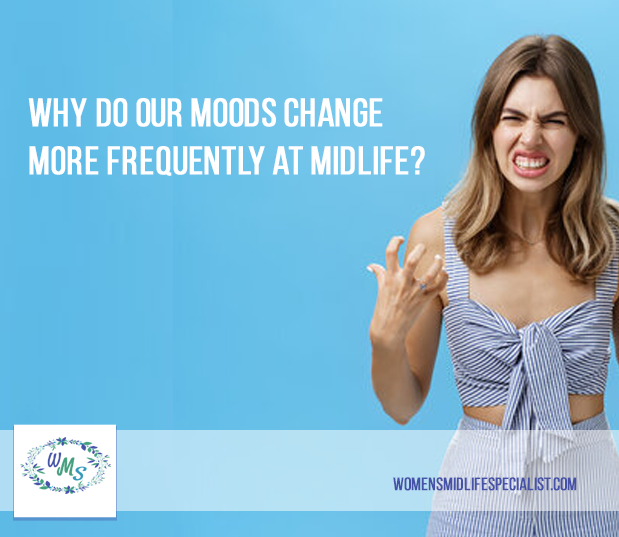Why Do Our Moods Change More Frequently at Midlife?

Mood Swings, sadness, anxiety, irritability and even panic attacks are linked directly to our sex hormones.
A symptom that your hormones are changing is Mood Swings, Irritability and
Feelings of Sadness.
Estrogen, Testosterone AND Progesterone all affect our brains by influencing chemical messengers called neurotransmitters such as dopamine, serotonin, acetylcholine and Gamma amino butyric acid. PMS or premenstrual syndrome, is caused by fluctuations that are expected during very specific times of our menstrual cycle.
Since these fluctuations are at specific times, they are considered “normal fluctuations” or “expected fluctuations.” We all know what that means. At certain times of the month, usually in the middle of the month when you’re ovulating or at the end of the month right before your period, these expected fluctuations occur and you are more likely going to experience mood changes.
However, when we start moving into perimenopause – age 40 to 50’ish, these fluctuations are no longer occurring at reliable and specific times of the month, and INSTEAD start happening at UNexpected times – and, thus, we experience mood swings and the “emotional rollercoaster” at just about any time – sometimes without any rhyme or reason to its occurrence.
Estrogen is very active in the brain. It has very specific anti-depressive effects in the brain by stimulating serotonin and dopamine – two brain chemicals that improve our moods. However, that doesn’t mean that the higher the Estrogen, the happier we are. It isn’t that simple because it is still all about balance between Estrogen and Progesterone. Progesterone is also very active in the brain. In fact, it may be as high as 20 times more active in the brain than it is in the blood.
Progesterone has calming effects on the brain and stimulates GABA, or Gamma aminobutyric acid, our calming neurotransmitter. As levels of Estrogen go unbalanced from low Progesterone, we are more prone to feel tension, anxiety and panic attacks. On the other hand, as our levels of Estrogen decline, we can experience episodes of depression.


Leave a comment